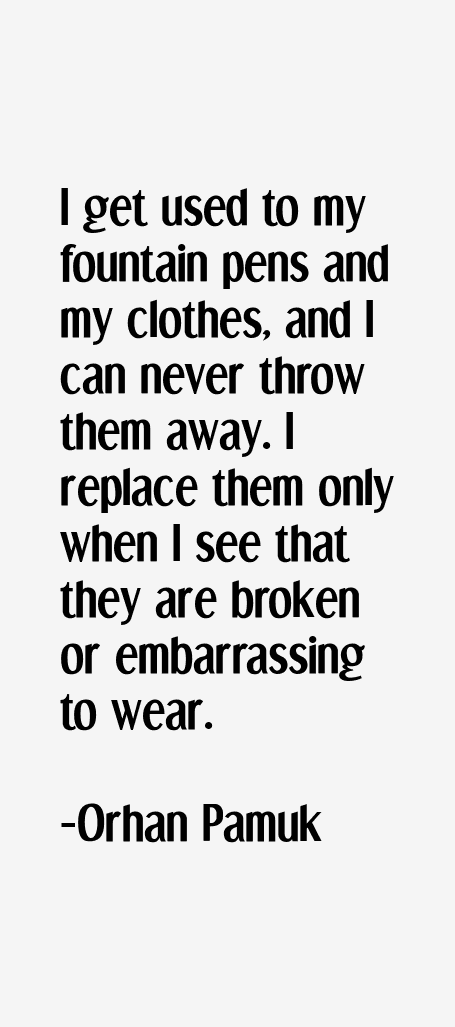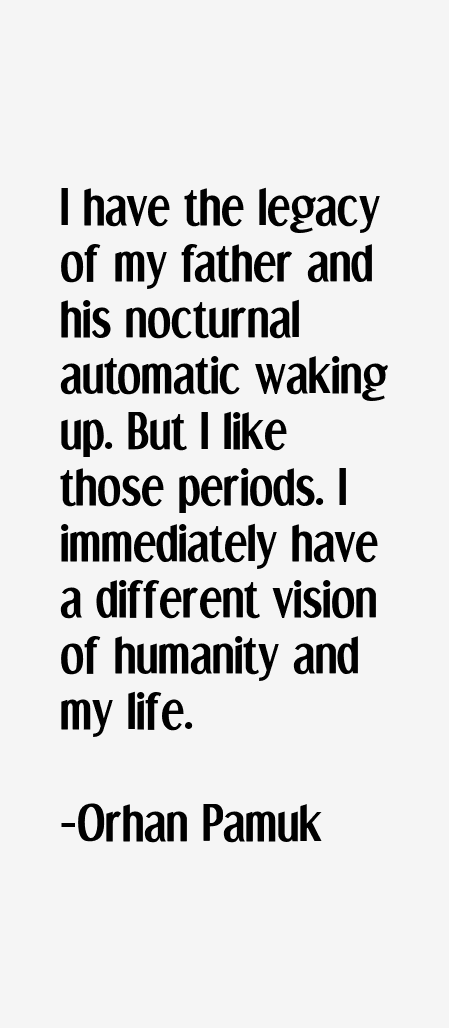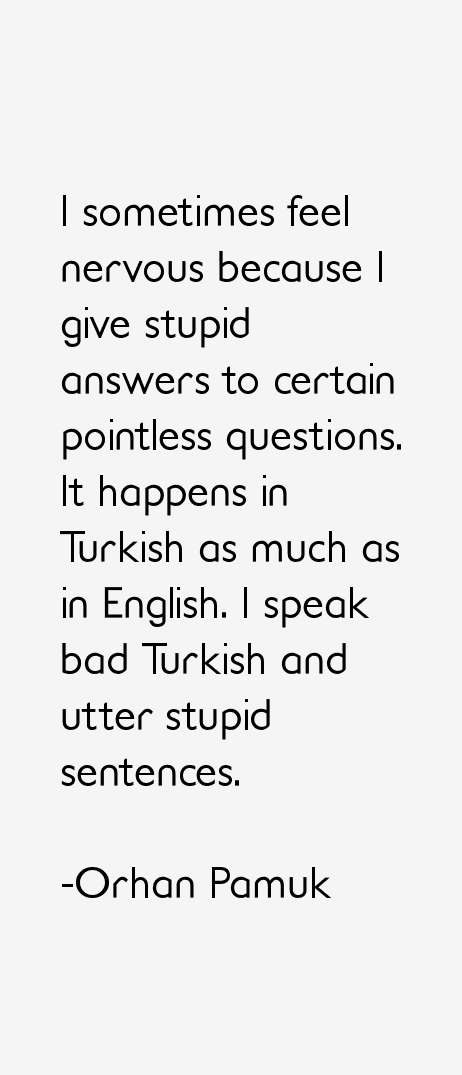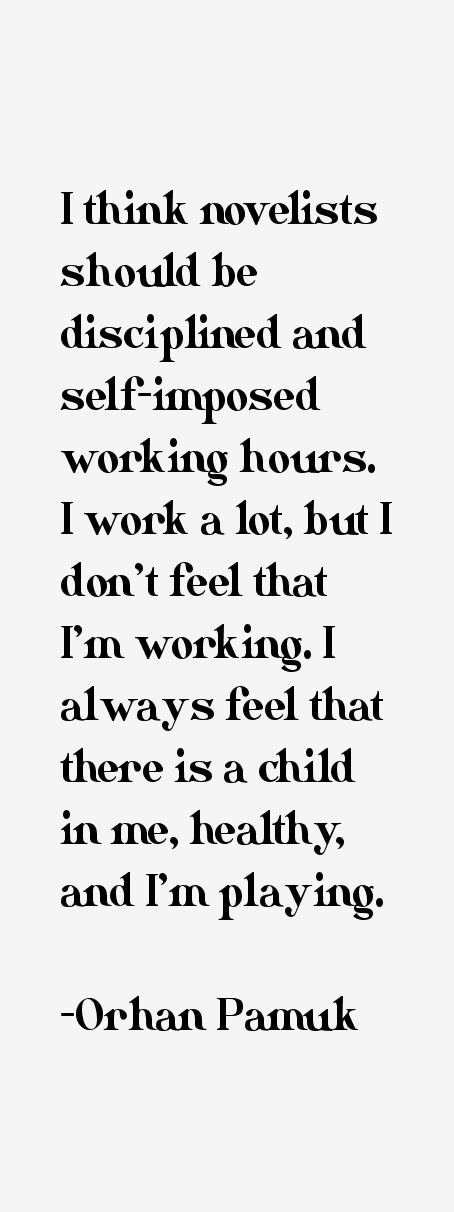Orhan Pamuk Quotes & Sayings (Page 6)
Orhan Pamuk quotes and sayings page 6 (73 year old novelist). Here's quote # 51 through 60 out of the 77 we have for him.
“Good fiction is about asserting the beauties of the world, inventing a new, positive thing. Where am I going to get that? And it should be original; it should not be cliched. So the way I looked at history was not to accuse it of failure.”
“I don't look at emails, Internet or newspapers before 1 P.M. I wake at 7 A.M., eat fruit, drink tea or coffee, and read what I've achieved, or not achieved, the previous day. Then I take a shower and work on my next sentence until 1 P.M. After I've done emails and so on, I write again from 3 P.M. until 8 P.M.; then I socialise.”

“I get used to my fountain pens and my clothes, and I can never throw them away. I replace them only when I see that they are broken or embarrassing to wear.”
“I have always thought that the place where you sleep or the place you share with your partner should be separate from the place where you write. The domestic rituals and details somehow kill the imagination. They kill the demon in me.”

“I have the legacy of my father and his nocturnal automatic waking up. But I like those periods. I immediately have a different vision of humanity and my life.”

“I sometimes feel nervous because I give stupid answers to certain pointless questions. It happens in Turkish as much as in English. I speak bad Turkish and utter stupid sentences.”
“I strongly believe that the art of the novel works best when the writer identifies with whoever he or she is writing about. Novels in the end are based on the human capacity, compassion, and I can show more compassion to my characters if I write in a first person singular.”

“I think novelists should be disciplined and self-imposed working hours. I work a lot, but I don't feel that I'm working. I always feel that there is a child in me, healthy, and I'm playing.”
“I wanted to tell a romantic and dark side of Ottoman history that was also slightly political, saying to the previous generation of writers, 'Look, I'm interested in Ottoman things, and I'm not afraid of it, and I'm doing something creative.'”
“I wrote 'My Name is Red' just to remember painting, where the hand does it before the intellect. When I'm captive to it, I'm a happier person. Kierkegaard tells us that a happy person is someone who lives in the present; the unhappy person, someone who lives either in the past or the future.”
Orhan Pamuk Quotes Rating
No Ratings Yet
Leave A Comment
























